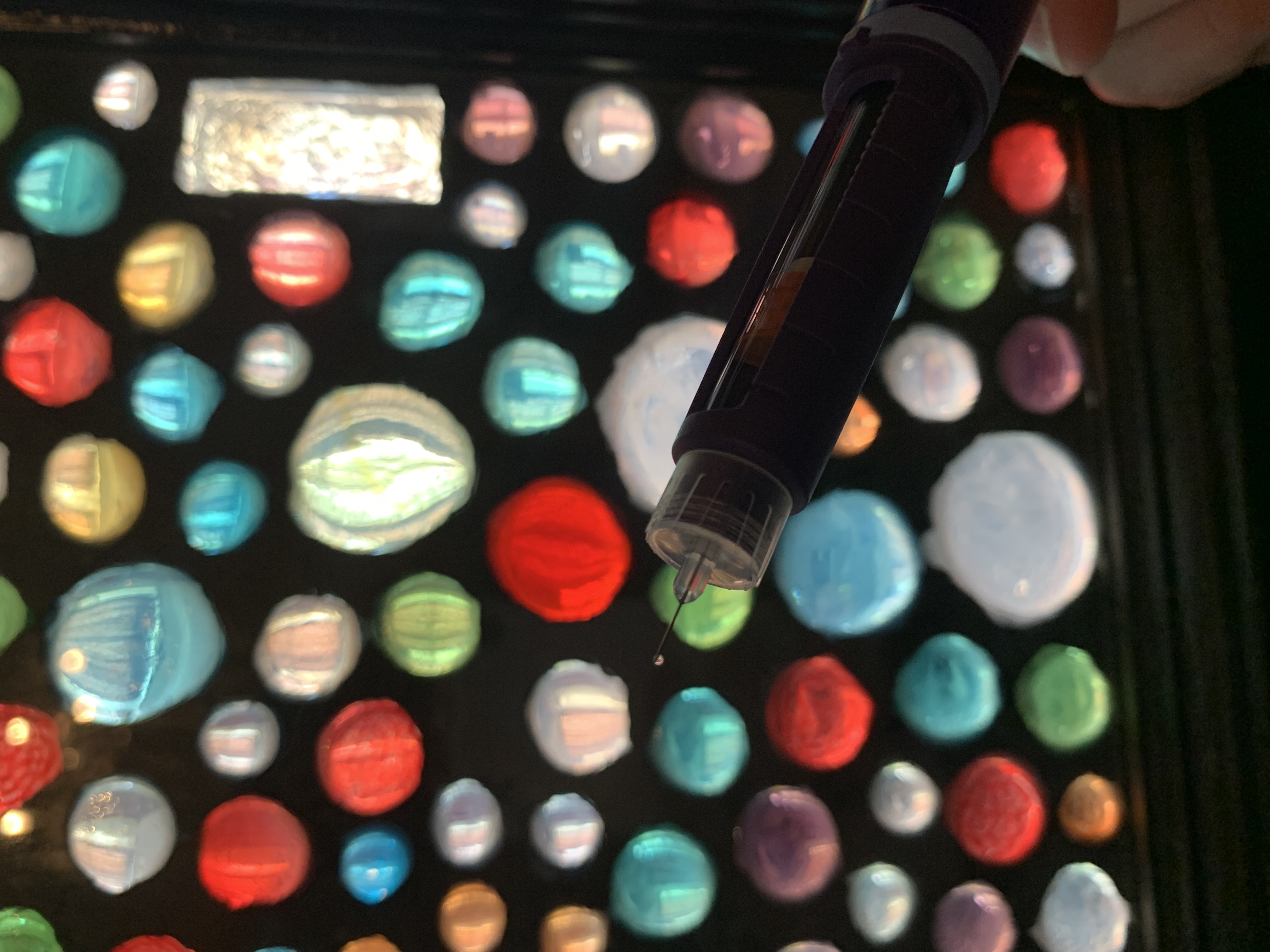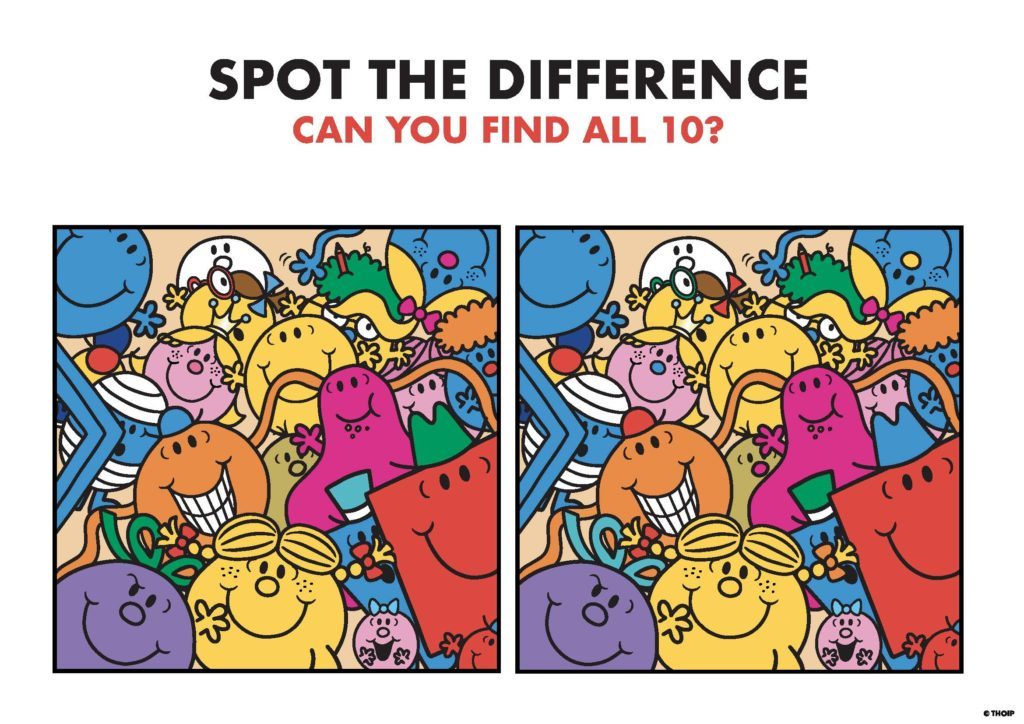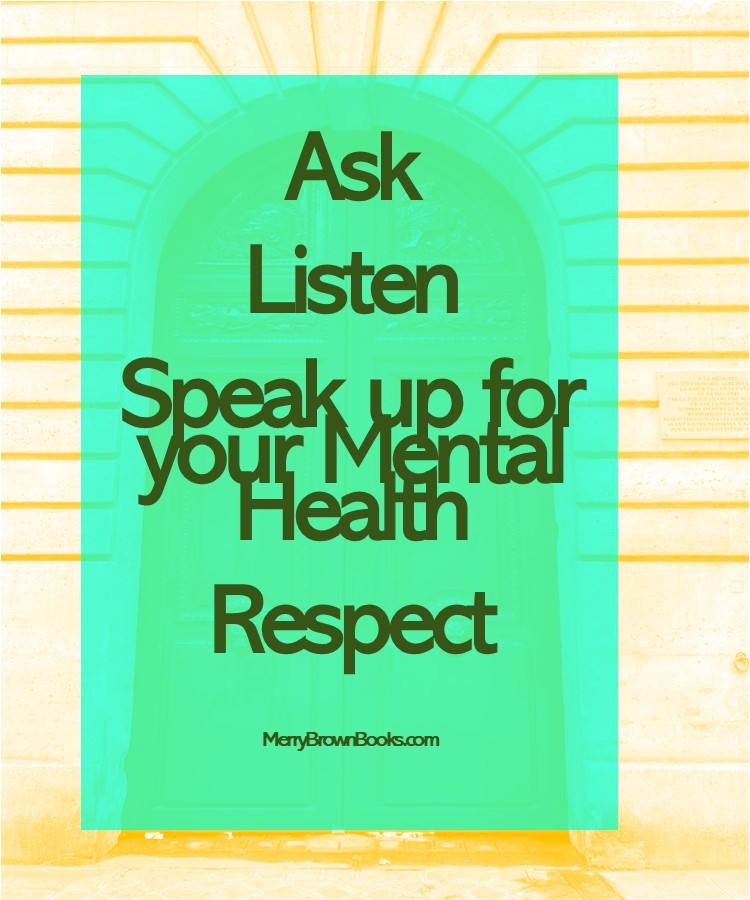Three Things: Holiday Food
December 14, 2021
I was at an event this weekend where I overheard the comment, “I want to make a change, but it’s the wrong time of year. Too much sugar.”
I knew what she meant. Holidays are the party season where we feast together. I bake, you bake, and she bakes… and then we eat it all.
That used to be my story. In recovery from my food addiction, parties are now parties, not food-laden minefields. Here are three things I realized this holiday party season about my relationship with food:

One: I feast all of the time (if I want to)
My mantra is: I’m not on a diet. I can eat what I want.
I eat all the food I want, whenever I want. Nothing is off limits. Since I live this way, whenever it’s time for party food I don’t overindulge. I don’t need to. Party food, while special and fun, no longer calls to me, “Merry, eat me now! Stuff it down before it’s too late!”
Two: I don’t think about food, even at parties
When I am going about my daily business, I don’t give food much thought. This is because I know where the food is and am confident I can access it if I feel I need it. When at parties I find the food, but what I eat, if I’ll eat, & what I “should and shouldn’t” eat don’t cross my mind. Food has become a non-issue for me at parties. My mind has been cleared to be with the people and not filled with dread about the food.
Three: There is no “wrong” time to get a healthy mind
The comment about sugar really took me back because I was (am?) addicted to sugar. On my Last Diet Ever I gave up sugar. I reasoned this was the only way to deal with the addiction. And so I battled with sugar, banning it from my life, and declared myself the victor in the war. Me vs. Sugar. And then the bottom fell out as sugar danced all over me. An endless cycle of bingeing ensued.
When I recovered from binge eating disorder, I saw my path forward: making peace with food was making peace with sugar. I thought my food issues were simply about the food. About the sugar as a toxin. Now I understand, for me (I only speak for myself) sugar itself is not the biggest problem. Once I decided to be more concerned with my mental health than the size of my body, I found a truce with sugar. I decided not to control it, and in return it no longer controls me.
I encourage you to throw out this thinking: “I want to make a change, but it’s the wrong time of year. Too much sugar.” Get rid of the restrictive diet mentality and gain a new one that tells you the truth.
Taking Weight Loss Medicine
November 5, 2021
Should you take medicine?
What a strange question. You should take (legally prescribed) medicine if you need it, and you shouldn’t take medicine if you don’t need it.
Fine. And?
I suppose the issue is whether someone needs medicine. So, let’s investigate. Which of the following situations do you think is a possible legitimate situation in which to take medicine?
- A cancer patient who has a treatable condition with medicine.
- A clinically depressed person whose doctor has determine she would benefit through the use of medicine.
- Someone with high blood pressure, which has not been able to be regulated through other means available.
- Someone who suffers from schizophrenia.
- Someone who suffers from disordered eating.
Over the past few decades, taking medicine to treat mental health disorders has gained acceptability in the American mind, with some notable holdouts. But when it comes to weight loss medicine? One only has to read the comments on any post or article that mentions weight loss medicine to see we have a long way to go.

Why is there such a negative reaction to taking medicine to help people with eating disorders?
My explanation is because we still see food problems as a basic moral issue, lack of self-control. And you don’t take a pill to be more moral.
Stop it.
Stop this false narrative.
People with illnesses should be offer the full range of help available. The negative stigma surrounding weight loss medicine prevents too many people from investigating possible ways to manage their condition.
Is weight loss medicine suitable for everyone? Of course not. Is weight loss medicine appropriate and helpful for some people? Absolutely!
I’ve been taking weight loss medicine for two years. I don’t diet, but the medicine is one piece in the puzzle that helps me manage my condition.
It’s hard to be misunderstood and judged. But those judging voices who say weight loss medicine is wrong to take speak out of a place of fear and ignorance. Therefore, I’ve decided to speak-up. I am proud that I have the courage to finally take care of and manage my condition.
You, there. You with the disordered eating. There is help for you. It may or may not include medical intervention. I encourage you to look anew at all of the real possible ways to heal from and manage your food issues. Peace and strength to you.
To Notice (out loud) Or Not To Notice (out loud)
October 16, 2021

I’ve been thinking about bodies and how we talk about them. Last week, actor Jonah Hill posted on Instagram, “I know you mean well but I kindly ask that you not comment on my body. Good or bad I want to politely let you know it’s not helpful and doesn’t feel good. Much respect.”
We are creatures with senses. When we note something different about a person, we react. Sometimes we verbalize the difference as a way to tell the other person we care about them. “You cut your hair!” or “You aren’t wearing glasses. Are you wearing contacts now?” or “So, you’ve decided to grow a mustache. Tell me more.”
When it comes to weight, verbally recognizing a difference is sticky. If someone is larger than the last time you saw them, it’s usually a good idea to keep those thoughts to yourself.
But when it comes to losing weight, congratulating someone is… tricky. When I used to diet, when I’d lost enough weight for someone to notice, I’d usually “fallen off the diet wagon,” was just about to gain it back, and an emotional wreck. At other times, before the inevitable fall, I was proud of what I’d accomplished.
For me, part of the horribleness of living with a food addiction is my inability to hide my body from the world. I want my struggles to remain private, but I feel like a walking billboard for all the world to see.
What do I want now? I wish no one would comment on my weight. I know it’s strange, but it’s stressful to feel looked at. I mean, we are all ‘looked at,’ but when the weight comment hits, it feels like a sizing up – as if for a moment I’m an object that is either good or bad, pleasing or displeasing depending on my weight. (Though my experience of “being looked at” is so vastly different from the scrutiny the famous constantly face).
While I don’t want anyone to talk about my weight, I feel no ill-will toward those who think they are paying me a compliment. I don’t hold them responsible for my food addiction and misfiring brain.
But I know not everyone feels as I do. If you don’t mention a noticeable weight loss, it’s quite possible the person you’re interacting with may feel hurt or unseen.
So, what do we do? Walk on eggshells around each other? No. We act like adults. We take Jonah Hill’s lead. We ask people to treat us the way we want to be treated and, conversely, we respect the wishes of others.
